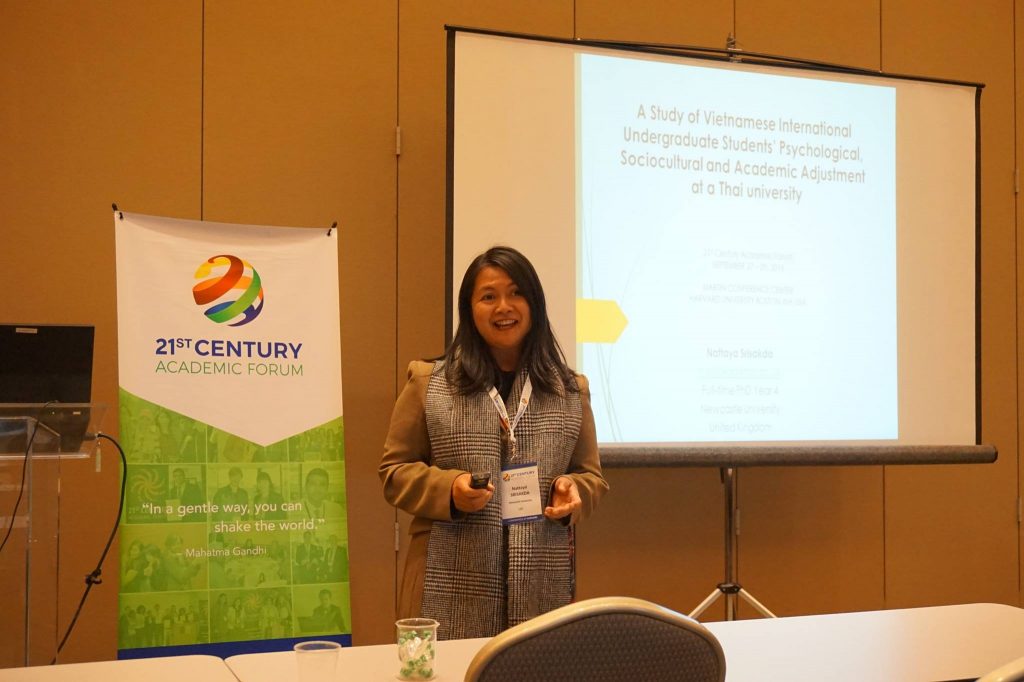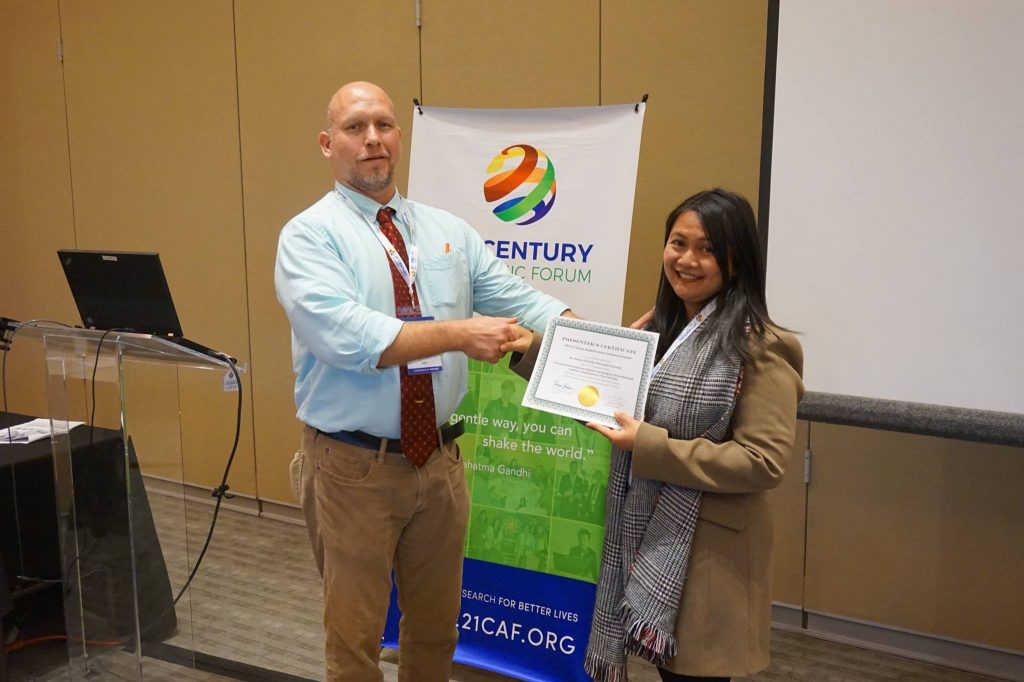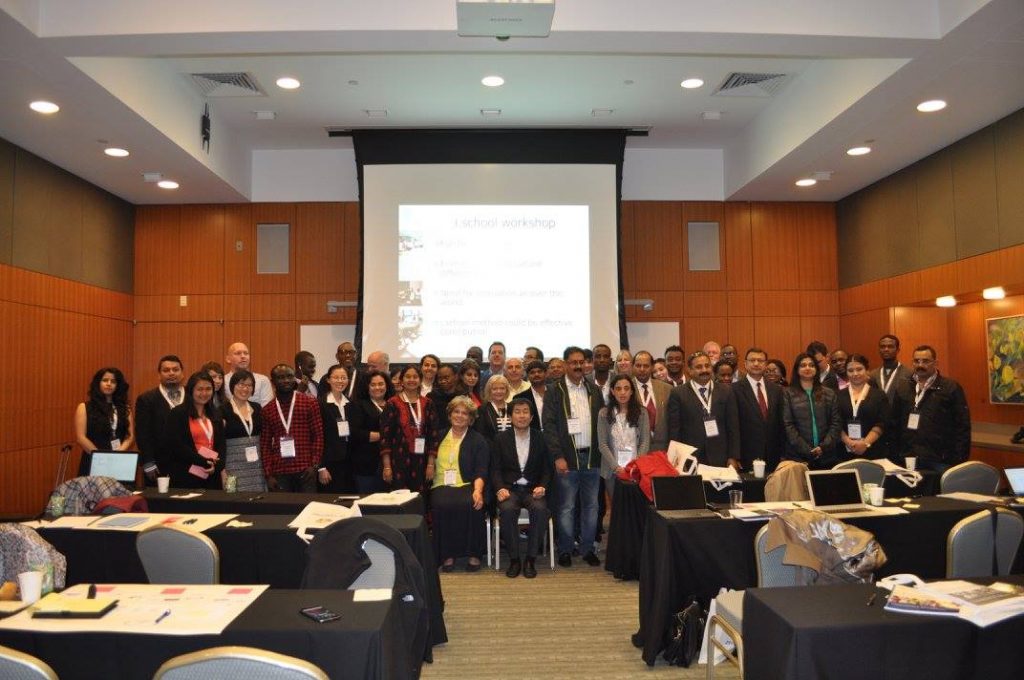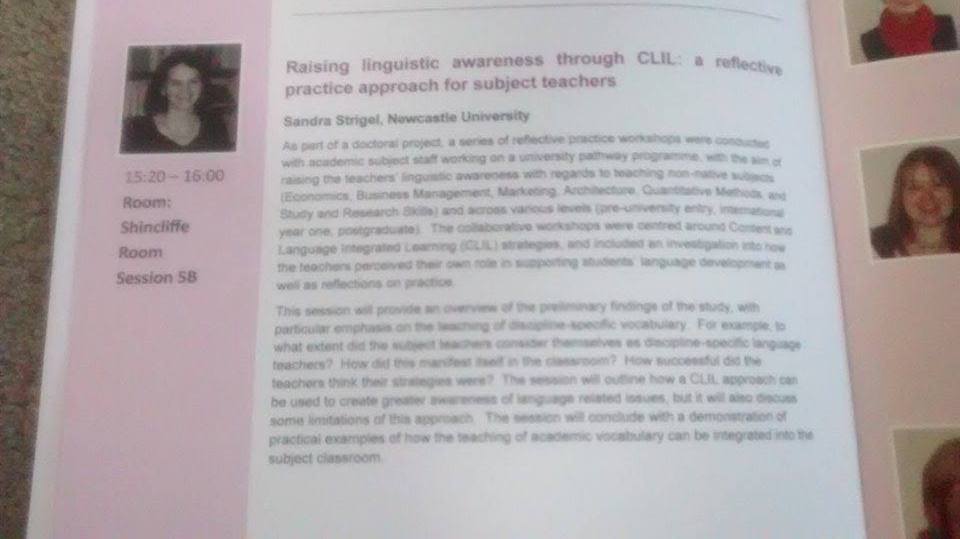I participated in the 21st Century Academic Forum Conference which was held at Harvard on 27-29 September 2016 and I gave a presentation entitled, “A Study of Vietnamese International Undergraduate Students’ Psychological, Sociocultural and Academic Adjustment at a Thai university”.
On the first day of the conference, I also attended a workshop on the topic, “Social Innovation based on Collective Intelligence Workshop” led by Professor Hideyuki Horii of the University of Tokyo. The goal of this workshop was to create ideas of social innovation based on collective intelligence. It seemed that the workshop was run to break the ice because all the attendees were required to join and complete the task in groups. The activities were great and because all the attendees started to talk, introduced themselves and helped each other to complete the assign tasks. It was fun and a great start.
On the second day, I presented my work. There were several benefits in presenting my work at this international conference.
Firstly, presenting my work at a conference gave me an opportunity to practice my presentation skills. It helped me develop the expertise needed to discuss my research in a clear and meaningful way. I learnt to answer questions raised by the audiences (who may or may not be familiar with my field of research) which would help me in other endeavours such as the dissertation defence (just be prepared!).
Secondly, at the conference, I had an opportunity to meet researchers with similar interests, giving me the opportunity to discuss my research and learnt valuable information from people working with similar techniques, populations, or statistics. Comments from other researchers provided new insight and perspectives about my work.
Thirdly, since it was an international conference, I had an opportunity to meet researchers and educators from over the world, which was a great opportunity to make connections.
Last but not least, I also learnt things outside my field since this international conference supports the expansion of research exploring interrelationships among the disciplines.
By Nattaya Srisakda, Year4 IphD student




